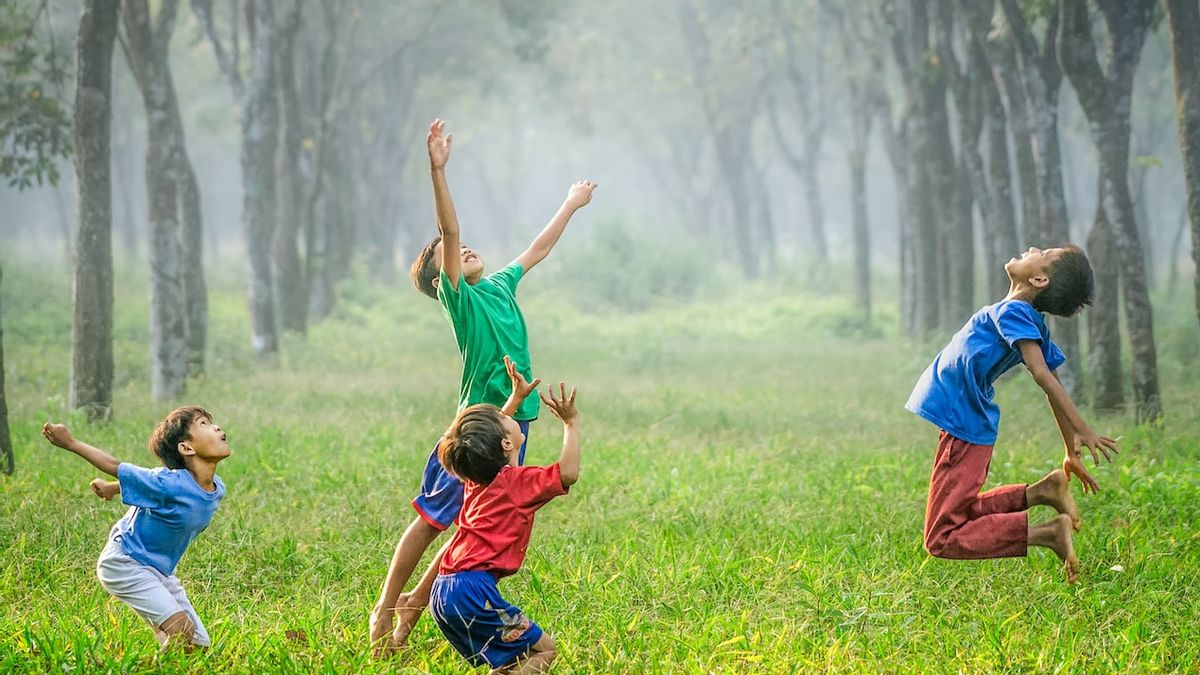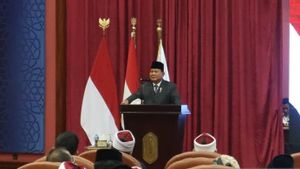Member of the Legislation Body (Baleg) of the Indonesian House of Representatives, Luluk Nur Hamidah, spoke about the importance of family ties or bonds to prevent acts of Sexual Violence (TPKS). He conveyed this during discussions with influencers who are also child activists, Nabila Ishma.
The discussion about the importance of the role of the family in preventing the Crime of Sexual Violence between Luluk Nur Hamidah and Nabila Ishma emerged in the 'Ngobrolin DPR' program which was broadcast via live Instagram, Wednesday 18 October. The live Instagram program took the theme Parents and Children' To Prevent TPKS'.
In the casual discussion program, Luluk stated that parents have an obligation to create ties with their children. Because family binding that is full of moral values can make children understand how to avoid sexual violence.
"Family participation in the prevention of criminal acts of sexual violence, for example, can be realized by strengthening education in the family, such as aspects of morals regarding ethics, religion, about culture," said Luluk.
The Indonesian House of Representatives itself has produced a legal umbrella that was created with the spirit to reduce sexual violence practices, namely Law No. 12 of 2022 concerning TPKS. Even so, this law is not the only way to stop the phenomenon of sexual violence which has become a scourge in Indonesia.
"Because there are no fewer victims of sexual violence every day, so there are many victims and then there are also years of age. From the youngest, they are still toddlers," he said.
"The victim does not look at gender, it can be a man or a woman, but the most is indeed a woman in all age groups," continued Luluk.
SEE ALSO:
The TPKS Law is present because cases of sexual violence in Indonesia are already so emergency that special legal products are needed regarding TPKS. Luluk said that the TPKS Law is a comprehensive regulation in preventing sexual violence from occurring to handling victims with an integrated service system.
"Moreover, education about gender equality has not been strongly given to us," he said.
Therefore, Luluk views the role of the family as very important to raise awareness of children so that they can respect each individual regardless of gender. If an individual gets the right moral teachings as early as possible, it will be the capital for the person concerned to be able to live according to moral and ethical values.
"For example, it should not be degrading if you have a younger sister or vice versa, you should not bully. So the principles of cooperation, mutual cooperation, mutual respect that humans have value or value that must be maintained. This needs to be instilled since childhood," said Luluk.
In addition to moral values and character, parents are deemed necessary to teach about reproductive education in children whose material is in accordance with the age level of the child. Such as teaching children who are still young to understand how to respect their own body and other people's bodies.
By being taught about reproductive education, children from childhood will receive training to be able to find out which parts of the body are sensitive and should not be seen and touched other than by themselves. Luluk also assessed that reproductive education can teach about the consequences of sexual intercourse outside of marriage.
"Producing education or sexuality education is important for us to know that every body of ours has a function, then has a response to something that, if later this is not maintained, will certainly cause problems," he said.
According to Luluk, education from families related to bonding will be more effective than children finding out for themselves through other means such as social media. Because direct education from parents will be a complete package because it contains knowledge and moral learning.
"Don't let children be taught by others, by social media or from toxic groups," Luluk explained.
Regarding gender equality which is also often an issue in TPKS, the legislator from the Central Java IV electoral district also believes that this must be instilled by parents to their children. Luluk said that an understanding of gender equality must be done from a young child so that children can understand that men and women have the same rights and degrees.
"Education on gender equality has not yet been strongly given to us, for example, men view our woman who is full of power or sees the woman as a weak party or a small child as a weak party and then deserves to be a victim," he explained.
Education instilled by parents to children is expected to be at the forefront of fighting sexual violence. This is also a guard so that children can find out the forms of TPKS because without strong educational capital, individuals can become perpetrators or victims of TPKS.
And sexual violence can occur anywhere, even houses where we feel the safest also often occur. It can also occur in educational places, even educational institutions occupy the second largest space. Whether in universities or religious institutions, sexual violence is very high," explained Luluk.
Furthermore, Luluk reminded parents to continue to monitor their children's environment and associations. Especially in the era of technological advances that allow children to access various content.
How parents control what their children access on social media. Opening the space for openness when children ask without judging, this is why bonds in the family are so important in order to instill value in children," he said.
Luluk's statement was also agreed by Nabila, who had been concerned about issues about children. According to him, family presence is very important to prevent sexual violence.
"So preventive measures are very important, and the main base lies with the family, how families create safe houses for children," said Nabila.
This graduate of the Faculty of Law, Padjadjaran University, then examined the stigma in society, who sometimes thought that before the rape, this action could not be categorized as sexual violence. Moreover, Nabila said, with the many cases in which the victim was blamed when he revealed that he had TPKS, especially in female victims.
"Then how is the TPKS Law created in such a way, it is enough to protect victims of sexual violence. We all know that many victims are reluctant to make reports because they feel ashamed or afraid to be considered excessive," he asked.
Luluk also explained that the rules in the TPKS Law firmly state that every report of victims of sexual violence must be investigated by law enforcers. For this reason, he appealed to the public not to be afraid to report if they experienced sexual violence.
"Right now, sexual violence is no longer just a matter of rape. In fact, harassment, whether direct or not, is regulated in the TPKS Law," explained Luluk.
"Moreover, now is the era of digital media, or social media. If there is harassment in the area, it can also be included in the realm of the TPKS Law," he continued.
Various questions from netizens also enlivened the 'Ngobrolin DPR' program. Nabila then read out one of the questions for Luluk from the live Instagram audience.
"This is a question, ma'am, what if the victim is a man. Is sexual violence also included?" Nabila said reading out questions from netizens.
Luluk then answered firmly, all gender and any background could be victims of sexual violence. Although the majority of sexual violence is women and children, it does not mean that men cannot become victims.
"The victim could be a boy or a girl. If we look at the data, women are indeed more vulnerable. But men can also be victims, especially boys who from the data are known to be more. If they are adults, it does not mean that men are not victims, it could happen," Luluk replied.
On that occasion, Luluk also explained that the TPKS Law also regulates assistance for victims of sexual violence. Including guarantees from the state for victims and assistance from institutions specifically dealing with victims to recover their physical and psychological trauma.
"The victim also received a guarantee of restitution or then a fine that must be paid by the perpetrator that must be given to the victim," said the member of Commission VI of the DPR RI.
"The presence of a companion institution is finally guarded by this law, that this institution must exist and it is also important to be facilitated by the Government so that they can carry out assistance functions to victims," concluded Luluk.
The English, Chinese, Japanese, Arabic, and French versions are automatically generated by the AI. So there may still be inaccuracies in translating, please always see Indonesian as our main language. (system supported by DigitalSiber.id)

















